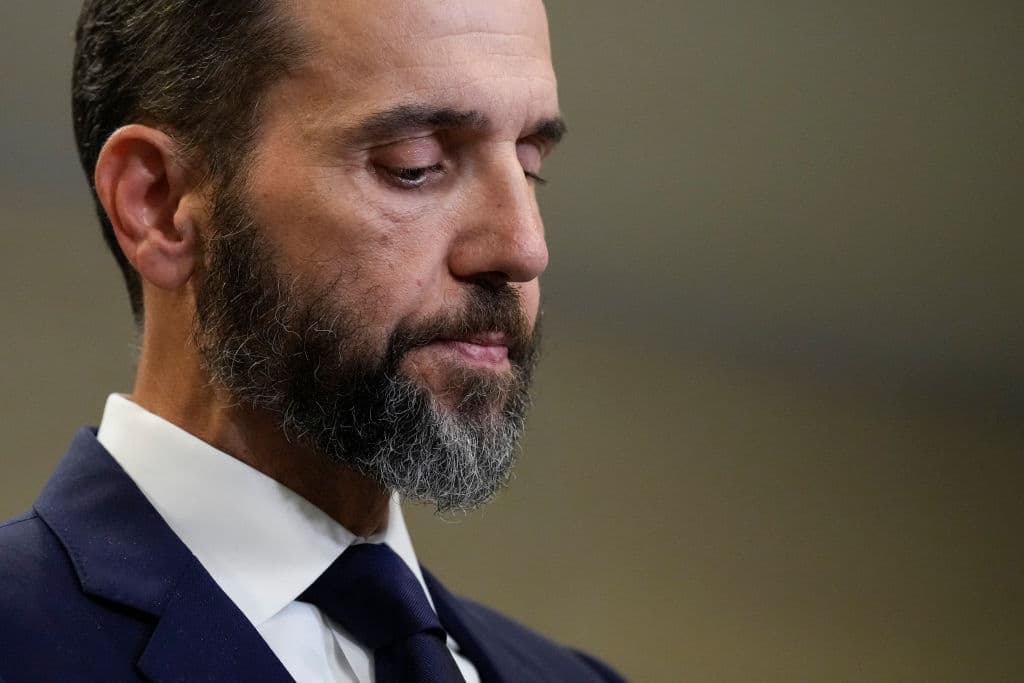Trump and Jack Smith Gird for Confrontation Over Immunity, Upping the Pressure on ‘Presidents Are Not Kings’ Judge Chutkan
The justices, clearly displeased with how the case has been handled so far, could yet weigh in again.

When Judge Tanya Chutkan next month presides over a conference of lawyers representing President Trump and Special Counsel Jack Smith, it will be her first hearing in the case since the Supreme Court served her with a stinging rebuke.
Judge Chutkan, who was appointed to the district court bench by President Obama, ruled that former presidents are not entitled to immunity for acts undertaken while in office. She memorably refused Trump, and any other president past or future, the “divine right of kings” once enjoyed by the likes of George III. While overseeing the trial of a January 6 protester, she declared, “Presidents are not kings,” a reference to Trump.
Indeed, the judge, who hails from Kingston, Jamaica, has handled more than 30 cases relating to the events of January 6, 2021. A study by the Washington Post found that she imposed the harshest sentences for the riot of any judge assigned to mete out punishment. She also, in 2021, denied Trump’s motion to keep records from being released to the January 6th Committee. That was upheld by the United States Court of Appeals for the District of Columbia Circuit.
Those jurists also agreed with Judge Chutkan that Trump was entitled to no immunity with respect to Mr. Smith’s indictment. The high court, though, overruled both the district and the appellate court. Chief Justice Roberts’s majority opinion did not endorse her invocation of the Mad King, taking issue with her “expedition of this case, the lack of factual analysis … and the absence of pertinent briefing.” Judge Chutkan had indicated earlier this year that she planned to vacation in August.
That kind of language is rare, even when a higher court reverses a lower one, and suggests that the justices disapproved of how she handled the immunity issue in her courtroom. The D.C. Circuit, too, allowed the case to pursue an expedited course. The high court, though, rejected Mr. Smith’s petition for the “extraordinary” remedy of rendering a judgment before the circuit court ruled. Mr. Smith argued that such an accelerated schedule was “of imperative public importance.”
Now, the Supreme Court has sent the case back to Judge Chutkan “to determine in the first instance — with the benefit of briefing we lack — whether Trump’s conduct in this area qualifies as official or unofficial.” Judge Chutkan and the D.C. Circuit will embark on the case’s next phase with the knowledge that the high court expects a different process than the one that has unfolded so far.
That process will begin on September 5, and it will involve a “mini trial.” This could include the questioning of witnesses and presentation of evidence. The rulings that Judge Chutkan makes relating to the official scope of Trump’s acts will be appealable to the D.C. Circuit, and possibly to the Supreme Court. That’s because the high court ruled that issues of immunity are all to be decided before the jury trial begins.
While the justices remind Judge Chutkan that they amount to a “a court of final review and not first view,” they do deign to give her “guidance” over how to clarify the question of immunity that has upended the January 6 prosecution. Chief Justice Roberts writes that the “necessary analysis is instead fact specific, requiring assessment of numerous alleged interactions with a wide variety of state officials and private persons.”
Judge Chutkan, though, appears to have lost none of her predilection for dispatch. As soon as the case was returned to her courtroom, she denied Trump’s motion to dismiss the prosecution as “selective and vindictive.” She also set a brisk briefing schedule, with the September 5 conference initially assigned to this month. It was Mr. Smith, in what he calls “consultation with other components of the Justice Department” — possibly Attorney General Garland — who requested a delay. Trump obliged.
One clue that Judge Chutkan could be heeding the Supreme Court’s mandate could be a gnomic order handed down on Thursday, “granting in part and denying in part the Government’s Motion to Strike Defendant’s CIPA Section 5 Notice. This Opinion and Order is classified and under seal.” The reference is to the Classified Information Procedures Act, which governs how secret documents are used at trial.
Judge Chutkan’s order means that she is allowing Trump’s request to use some classified documents in his defense, but not others. CIPA was at the center of Mr. Smith’s other prosecution of the 45th president, for storing documents at Mar-a-Lago. The charges in that case were dismissed by Judge Aileen Cannon after finding that Mr. Smith was unconstitutionally appointed by Mr. Garland. The special counsel has appealed, and that issue, too, could soon reach the Supreme Court.

